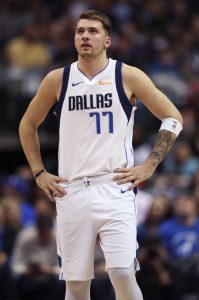One year removed from starting Game 1 of the NBA Finals, J.R. Smith sits on the sidelines, a place he has been since November of 2018. The Cavaliers explored trading him during the season, though they were unable to come to an agreement with another club before the trade deadline. A buyout seemed possible, but Smith’s contract, which was signed in 2016, remained a carrot that the team simply could not throw to the streets.
Smith’s 2019/20 salary of $15.68MM is only guaranteed for $3.87MM, Another team that lacks cap flexibility could potentially use his contract to quickly carve out upwards of $18MM in extra cap space, as our own Luke Adams detailed earlier in the season. To maximize those savings, a team would have to use the stretch provision on Smith, a move that would bring his cap hit to approximately $1.29MM.
The latest Collective Bargaining Agreement changed the calculus for salary matching in trades involving non-guarantees. The new rules took away the ability to swap guaranteed salary for non-guaranteed contracts as a means of creating salary cap space.
Had Smith signed under the new agreement, his contract would only count for $3.87MM (the guaranteed portion) for salary-matching purposes instead of his full salary ($14.72 for the 2018/19 season). While other players are currently under high salary deals with low or no guarantees, Smith’s is the only deal remaining from the former Collective Bargaining Agreement that fits that bill.
The Cavaliers have a trade chip that no other team possesses, though the clock is ticking on the asset; Smith’s entire salary for next season will be fully guaranteed if he’s on the roster come July 1. Let’s examine some teams that make sense as suitors.
Trail Blazers
The Blazers are projected to be a taxpaying team, with roughly $126MM in guaranteed salary on the books. The luxury tax threshold is expected to come in at $132MM and the team will have trouble bringing back Enes Kanter and Rodney Hood—two key members of their playoff run—without skyrocketing over the tax line.
Acquiring Smith would allow Portland to reshuffle its financial portfolio. Evan Turner ($18.6MM next season) is the team’s third-high paid player. Maurice Harkless ($11.5MM), and Meyers Leonard ($11.3MM) are fifth and sixth, respectively. If the Blazers feel Kanter or Hood are higher priorities than any of the three, they can swap one of those deals for Smith’s and give themselves a chance to compete for their guys on the free agent market without the internal dilemma of luxury tax concerns.
Dallas Mavericks
The Mavericks are expected to be active this offseason, searching the free agent market for additions to the Kristaps Porzingis–Luka Doncic core. They’ve been connected to Tobias Harris, Khris Middleton, and Kemba Walker.
Dallas would probably love to get out from Tim Hardaway Jr.‘s contract (approximately $20MM next season), but the fact that his contract still has multiple years left on it, running through the 2020/21 campaign, makes him a hard sell.
Shedding Courtney Lee ($12.7MM) may be easier and would give Dallas more flexibility this offseason. Dallas could attempt to entice Cleveland with a prospect like Justin Jackson or offer up the No. 37 overall pick in this year’s draft in order to acquire Smith. It’s not clear if anything short of a first-round pick will be enough to pry Smith away from the Cavs.
Brooklyn Nets
Whispers that the Nets are contenders to sign two max free agents can’t get too loud until the team clears out enough cap space to accommodate two stars. As our Salary Cap Digest indicates, Brooklyn doesn’t even have the ability to sign one max free agent without renouncing D’Angelo Russell or making additional transactions.
Moving Allen Crabbe, who has one year and $18.5MM left on his deal, would aid their quest for a star summer. The team has three selections among the first 31 picks in the upcoming draft (No. 17, 27, 31) and attaching one of those picks to Crabbe in exchange for Smith would create a clear path to additional cap space.
